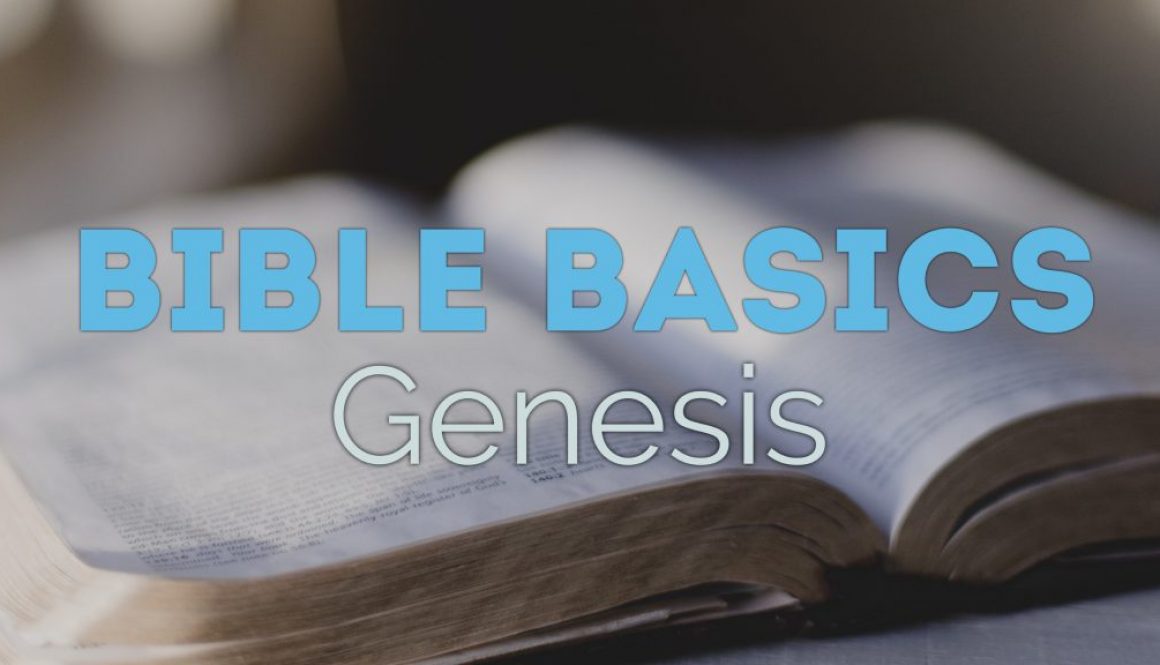Genesis
Author
Moses. We learn this from Luke 24:27 and John 5:46.
Date
Unknown. Moses’ ministry is considered to have been anywhere from 1500B.C. to 1300B.C.
Audience and Purpose
The book was written for future generations of Israel, recalling the history of the world and the children of Abraham from the moment of creation to about 1589B.C. when Joseph died. It lays the theological framework for everything else in the Bible, from the existence of God, his creation of man, the entrance of sin in the world, and the promise of redemption.
Moses intention at the time of writing was that the people of God would make a connection in trusting God’s creation of the world, with His promise to establish them in the Promised Land and beyond.
Major Themes
- Creation. The word “genesis” means “beginnings, and the book tells us of the beginning of many things: the world, humanity, sin, God’s promise of a Savior, families, civilization, nations, languages, and the nation of Israel.
- Sin. In Genesis we see the entrance of sin into the world and the immediate devastation it causes. Throughout the book we are introduced to varying levels of sinfulness. Sin against God by Adam and Eve. Sin against another person as Cain killed Abel. Sin at a worldwide level, leading to both the flood and the dispersion at the Tower of Babel.
- Grace. Despite the many punishments God shows in Genesis, He never gives up on people altogether. In fact, in the midst of human sinfulness, God still appoints imperfect men to represent Him: Noah, Abraham, Isaac, Jacob and Joseph.
Key Scriptures
- Genesis 1:1 — “In the beginning, God created the heavens and the earth.”
- Genesis 3:15 — “I will put enmity between you and the woman, and between your offspring and her offspring; he shall bruise your head, and you shall bruise his heel.” (This is the first promise of a coming savior, called the “proto-evangelion” or “first gospel.”)
- Genesis:12:1-3 — “Now the Lord said to Abram, ‘Go from your country and your kindred and your father’s house to the land that I will show you. And I will make of you a great nation, and I will bless you and make your name great, so that you will be a blessing. I will bless those who bless you, and him who dishonors you I will curse, and in you all the families of the earth shall be blessed.’”
Outline
- Genesis 1:1-2:3 — God is the Sovereign Creator and King of the Whole World
- Genesis 2:4-4:26 — Humanity’s Creation and Fall from Grace
- Genesis 5:1-6:8 — The Family of Adam: from Adam to Noah
- Genesis 6:9-9:29 — The story of Noah
- Genesis 10:1-11:9 — The Family of Noah to the Tower of Babel
- Genesis 11:10-26 — The Family of Shem: from Shem to Terah
- Genesis 11:27-25:11 — The Family of Terah: Abraham, Isaac, and Ishmael
- Genesis 25:12-18 — The Family of Ishmael
- Genesis 25:19-35:29 — The Family of Isaac: Esau and Jacob
- Genesis 36:1-43 — The Family of Esau
- Genesis 37:1-50:26 — The Family of Jacob: The 12 Tribes of Israel
Gospel Summary
Genesis contains so many of the famous stories we read in the Bible – the creation, Adam and Eve eating the fruit, Cain killing Abel, the flood, the tower of Babel, God’s friendship with Abraham, Lot and his wife, Melchizedek, and the entire lives of Isaac, Jacob, and Joseph. There is so much in these 50 chapters that it would be impossible to summarize it all. The key message of Genesis, however, is that God created man in His image, and though man has not done well to maintain on their own, God does not leave His plans to chance.
From the beginning, God has had a plan to show grace upon grace. It is in Genesis 3 where we see the first promise of a Savior. We, again, see this picture in Abraham’s near-sacrifice of Issac: “Abraham said, ‘God will provide for himself the lamb for a burnt offering, my son…’ (Genesis 22:8)
It is also in Abraham where we first learn that God forgives the sin of those who come to Him by faith: “And he believed the Lord, and he counted it to him as righteousness.” (Genesis 15:6)
At the end of Genesis, we should feel the weight of sin in the world, and yet we come away with expectation that God is going to fix it all.
© Anthony Scott Ingram 2020. All Rights Reserved.
Photo by Carolyn V on Unsplash
Unless otherwise indicated, all Scripture quotations are from The Holy Bible, English Standard Version®, copyright © 2001 by Crossway Bibles, a publishing ministry of Good News Publishers. Used by permission. All rights reserved.”
